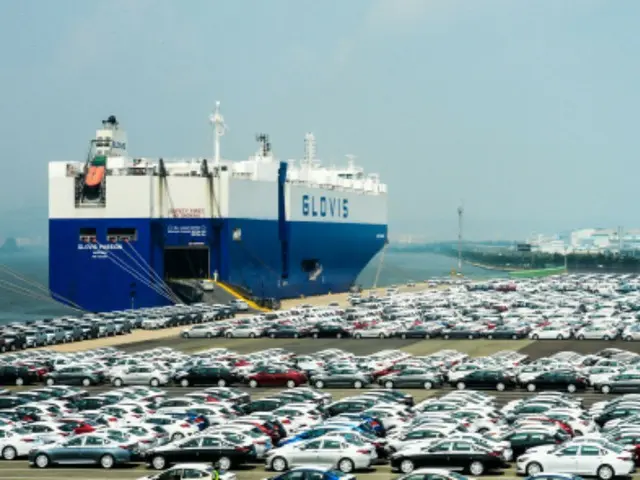Ha Neul, a researcher at NH Investment & Securities, wrote in a report dated the 30th, "If the 25% tariff remains in place, it will be difficult for both Hyundai and Kia to maintain their operating profit margins."
"If negotiations are concluded quickly and tariffs are reduced to 15 percent, we will be able to compete on an equal footing with our international competitors," he added.
This year, the global automobile market has continued to grow at a pace that exceeds expectations. Cumulative sales from January to August were
Sales reached 59.05 million units, up 4.1% year-on-year, significantly exceeding last year's annual growth rate (2.1%). By region, demand remained strong, primarily in China and South America, while growth slowed in Europe.
Hybrid electric vehicles (HEVs) are driving growth in the US market. Cumulative sales from January to July this year reached 1,633,000 units, a 32.2% increase from the previous year.
Meanwhile, in Europe, battery electric vehicles (BEVs) increased 26.1% year-on-year to 1,537,000 units. Plug-in hybrids (PHEVs) also increased 28.1% year-on-year.
"Competition centered on electric vehicles will intensify further as the European Union (EU) tightens carbon emission regulations, which will take effect in earnest from next year," Ha predicted.
As South Korean automakers enter the third quarter, the impact of US tariffs is beginning to have a major impact on their business performance, and a decline in profits is expected to be inevitable. Hyundai Motor lost approximately 828 billion won in the second quarter.
It is estimated that the tariff burden, which was 786 billion won in the second quarter, will increase to about 1.3 trillion won in the third quarter. Kia Motors is also expected to increase its tariff burden from 786 billion won in the second quarter to 1.2 trillion won in the third quarter.
Last month, South Korea had hoped that the tariff rate would be reduced from 25% to 15%, but negotiations are proving difficult. Even if the negotiations are concluded, the actual vehicle sales
Since there is a one to two month time lag between the reduction and the implementation of the 25% tariff, it is highly likely that the 25% tariff will be reflected in this year's financial results.
If this happens, Hyundai Motors is expected to receive a refund of 334 billion won and Kia Motors 325 billion won."
Hyundai Motor's third-quarter sales were 45.2552 trillion won, and operating profit was 2.4 trillion won.
This represents a 5.4% increase in sales compared to the previous year, while operating profits are expected to fall by 32.4%. Researcher Ha said, "Sales in regions other than Asia are strong, but
Kia Motors also posted third-quarter sales of 26.6 trillion won and operating profit of 2.1 trillion won, exceeding market expectations.
Operating profits are expected to fall 32.4% from last year. The tariff burden is estimated to be 3.1 trillion won this year and 4.8 trillion won next year.
"If this trend continues, a decline in profits will be inevitable," he said, but added, "We expect to maintain our competitiveness in the medium to long term through the expansion of our hybrid vehicle lineup and a smooth exchange rate."
In the second half of the year, tariff burdens are expected to be a major factor affecting profitability. Researcher Ha said, "The tariff burden for each automaker will be determined based on the amount of tariffs relative to operating profits.
"We must reject this," he emphasized. This is because manufacturers with low profit margins will inevitably face a blow to their business performance even if the tariffs are relatively small.
Manufacturers with low operating profit margins who cannot bear the burden of tariffs are selling
Some are predicting that the companies will move to raise sales prices. Nissan, Honda and Stellantis all posted operating losses in their auto divisions in the first half of this year. These companies are likely to face increasing tariff pressure.
Under these circumstances, it will be difficult to continue business unless prices are raised.
2025/10/01 06:13 KST
Copyrights(C) Herald wowkorea.jp 104

